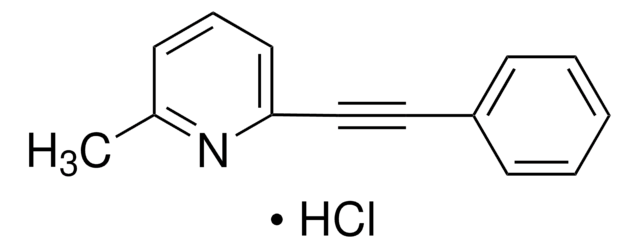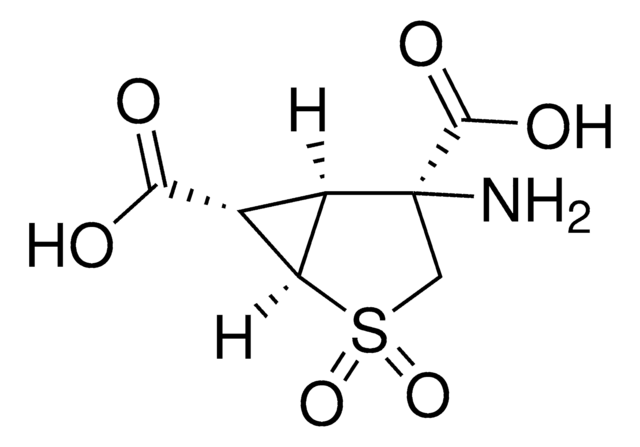M4699
MTEP hydrochloride
≥98% (HPLC)
Synonym(s):
MTEP hydrochloride, 3-[(2-methyl-1,3-thiazol-4-yl)ethynyl]pyridine hydrochloride
About This Item
Recommended Products
Assay
≥98% (HPLC)
storage condition
desiccated
color
white to beige
solubility
H2O: 30 mg/mL, clear
originator
Merck & Co., Inc., Kenilworth, NJ, U.S.
storage temp.
2-8°C
SMILES string
Cl.Cc1nc(cs1)C#Cc2cccnc2
InChI
1S/C11H8N2S.ClH/c1-9-13-11(8-14-9)5-4-10-3-2-6-12-7-10;/h2-3,6-8H,1H3;1H
InChI key
YCIOJDKGCWAHLR-UHFFFAOYSA-N
Biochem/physiol Actions
Features and Benefits
Storage Class Code
11 - Combustible Solids
WGK
WGK 3
Flash Point(F)
Not applicable
Flash Point(C)
Not applicable
Certificates of Analysis (COA)
Search for Certificates of Analysis (COA) by entering the products Lot/Batch Number. Lot and Batch Numbers can be found on a product’s label following the words ‘Lot’ or ‘Batch’.
Already Own This Product?
Find documentation for the products that you have recently purchased in the Document Library.
Articles
DISCOVER Bioactive Small Molecules for Neuroscience
DISCOVER Bioactive Small Molecules for Neuroscience
DISCOVER Bioactive Small Molecules for Neuroscience
DISCOVER Bioactive Small Molecules for Neuroscience
Our team of scientists has experience in all areas of research including Life Science, Material Science, Chemical Synthesis, Chromatography, Analytical and many others.
Contact Technical Service







